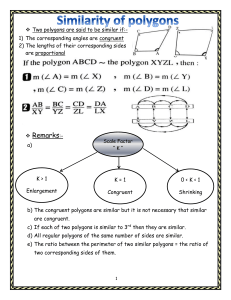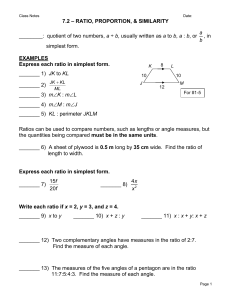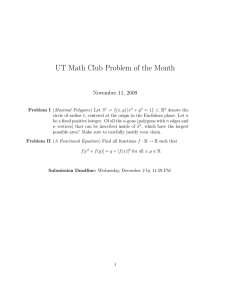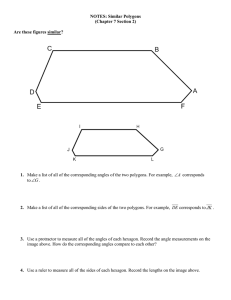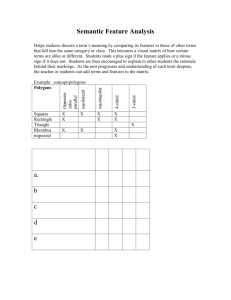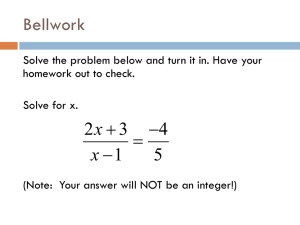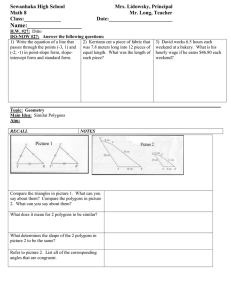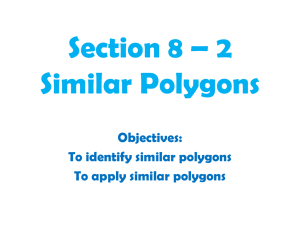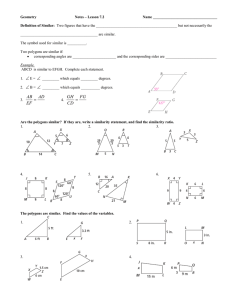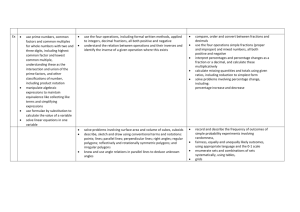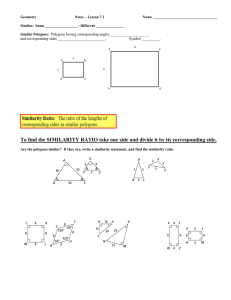PP Section 8.2 B
advertisement
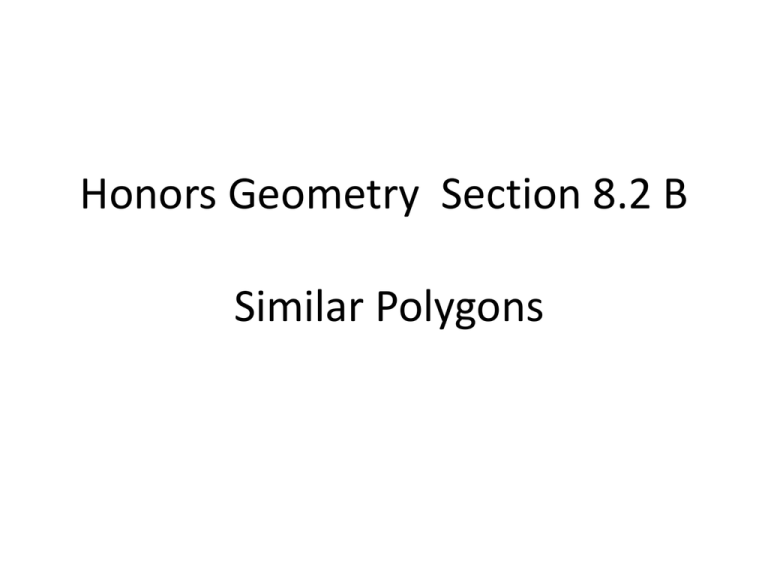
Honors Geometry Section 8.2 B Similar Polygons Two polygons are congruent iff they have exactly the same size and shape. Two polygons are similar iff they have exactly the same shape. More formally, two polygons are similar iff their vertices can be paired so that: 1. corresponding angles are congruent 2. corresponding sides are proportional. For corresponding sides to be proportional, the ratios of the corresponding sides must be equal. To state that the polygons to the right are similar, we might write ABCDE ~ JFGHI _______________ or CDEAB ~ GHIJF _______________ These statements are called similarity statements . List 2 (of the 5) pairs of congruent angles. List 5 ratios that will be equal. A statement such as this is called a proportionality statement. Example: In the figure above, AB = 15, JF = 21, FG = 30, GH = 14, DE = 18 and EA = 10. Find all missing lengths. AB JF 15 21 BC CD DE FG GH HI BC CD 18 30 14 HI EA IJ 10 IJ 15 21 BC 30 21 BC 15 30 CD 14 18 HI BC 150 21 CD 15 14 CD 10 15 HI 21 18 HI 25 . 2 15 IJ 21 10 10 IJ 14 IJ 7 The scale factor of two similar polygons is the ratio of any pair of corresponding sides. For the figures above, the scale factor is equal to 15 5 21 7 Note: You must write the scale factor in the same order as the similarity statement. Example: ABC ~ XYZ and AB = 24, BC = 32 and YZ = 40. What segment can you find the length of and what is its length? What is the scale factor for this similarity? AB XY 24 XY BC AC YZ 32 40 XZ AC XZ 32 XY 960 XY 30 scale factor 32 40 4 5
